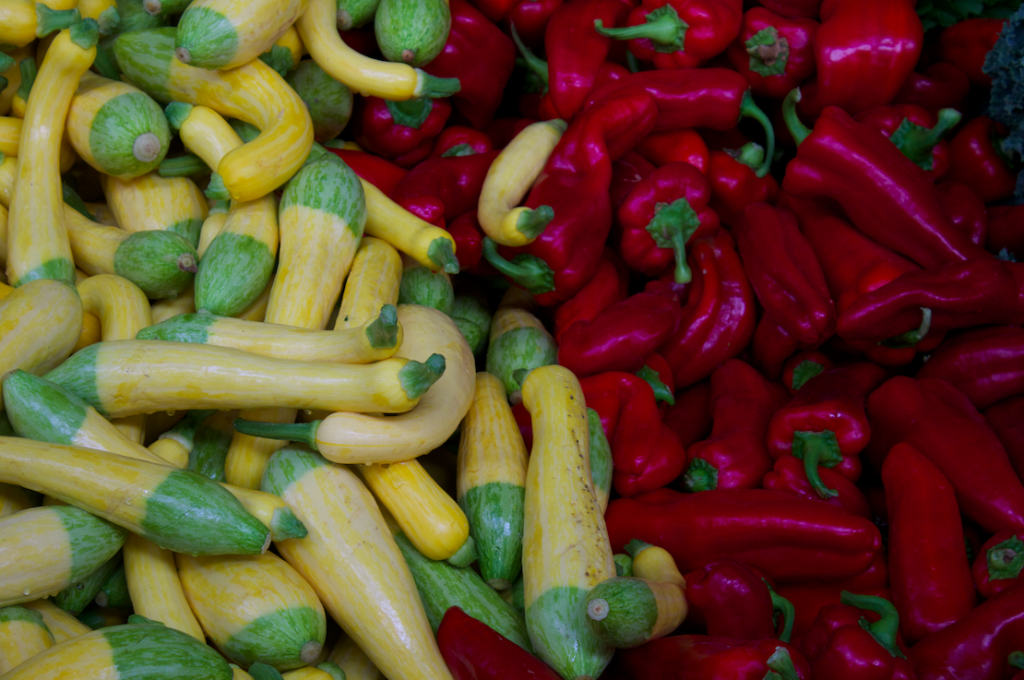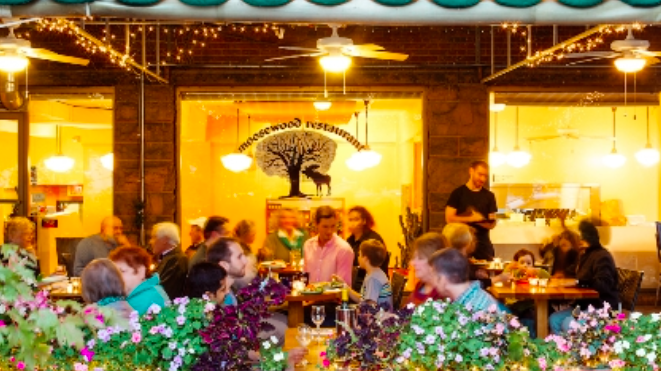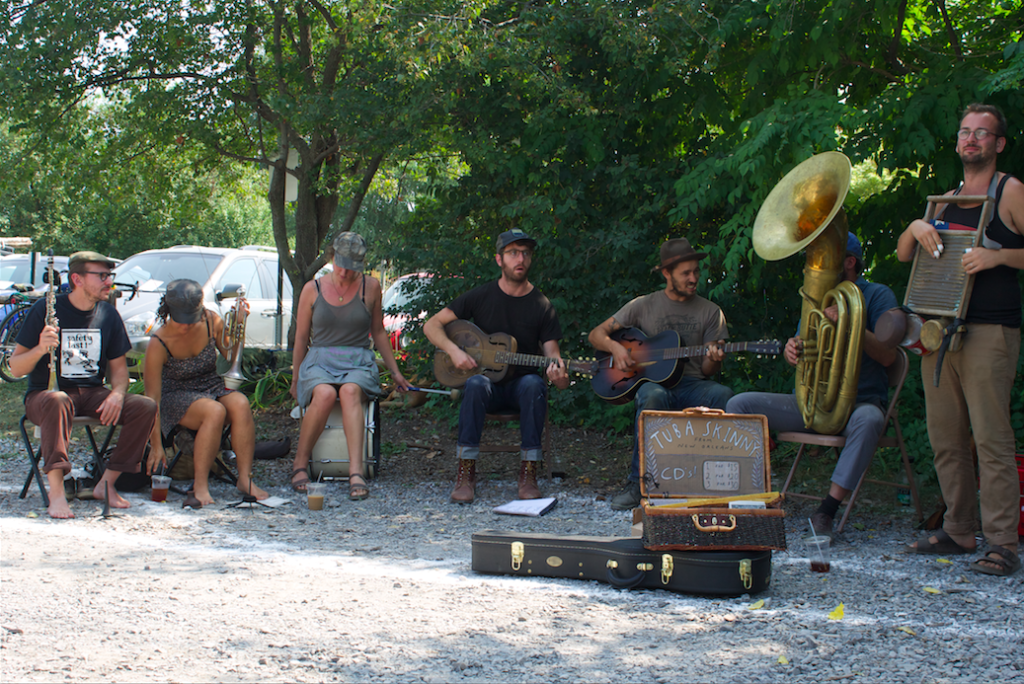What is the local food movement? Why should I care? How can I, a college student in Ithaca, NY, get involved?
These are three questions I found myself asking after a year and a half in Ithaca. It’s almost impossible to avoid the issue here. Between the bumper stickers, the on-and-off- campus buzz, the farmers’ market and other community events, I became curious. And hey, if you’re reading this right now, you might be in a similar situation.
What is the local food movement?
The local food movement is an initiative that connects area food producers with area food consumers. In other words, producers sell locally to ensure that you and I buy locally, knowing that our food is coming from a nearby source, instead of having origins on the other side of the country or even the world. The idea being that the less time our produce, poultry, eggs or meat spends in transport, the fresher it is, and the better it is for us (and the better it is for local producers).
Keep in mind that there is not yet a universal standard of which distances are considered “local,” but locavores (people who eat foods grown or produced locally whenever possible) generally have the same understanding. If you’re buying fresh milk from Watkins Glen instead of milk shipped from, say, Minneapolis, you’re choosing to buy local.
Why should I care/how can I help?
Despite what most people think, supporting the local food movement is about more than just eating fresh, seasonal produce. It stimulates our local economy, builds community relationships, preserves our environment and educates consumers. We’ve been given the opportunity to reap the benefits of what Ithaca has to offer, so we, as a student body, should feel an obligation to contribute more than heavy traffic and noise pollution. Am I right or am I right??
For years, Ithaca has been known for its food culture; VisitIthaca claims the city has more restaurants per capita than New York City! This is in no small part due to the city’s overwhelming student population, but supporting local restaurants is probably the easiest and most passive way to give back. A list of restaurants that serve local food can be found here.

Photo by Liana Glaser
If you’re on a meal plan and eating out isn’t always in your budget, but you believe in supporting the local economy, saving the environment and educating yourself on food production, here are 5 ways we can support this vital local-food movement.
1. Eat at Moosewood
You’ve probably walked or driven by it a million times without knowing it’s there, but Moosewood is a downtown institution when it comes to local eating establishments. A trailblazer in natural-food cuisine (with a slew of award-winning cookbooks), it’s been around since our parents were in college. Moosewood constantly switches up its mostly vegetarian menu, featuring what local farms are growing and what’s in season.
If eating out is one of those once-in-a-while-type occasions, Moosewood gets it: On Thursday nights, they offer a 25% discount with a student ID. Check them out for your next dinner splurge. You’ll be supporting their business, as well as local farmers—for a discounted price!

Photo courtesy of moosewoodcooks.com
2. Join a CSA (Community Supported Agriculture)
Let’s say you spend the summer in Ithaca: You’re without a meal plan, paying for rent AND groceries, and feel deprived of fresh fruits and vegetables. What do you do? One option is to sign up for a CSA, where you pay an annual (or seasonal) fee and in return get a box of freshly harvested fruits and vegetables weekly or biweekly. Since almost all farms in the area offer CSAs, it is likely you’ll be able to find a farm (organic or conventional) that can provide you with the produce you want, when you want it, and where you want to pick it up.
You can find a list of CSAs in the area and what they have to offer here. Plus, check out this article by a fellow Spoon contributor about her experience with a CSA.
3. Shop at GreenStar Co-Op
GreenStar is an indoor, year-round farmer’s market with two locations in Ithaca. One on DeWitt at 215 N Cayuga St and another on West End at 701 W Buffalo St. It’s a shopping hub for locavores in our community: Everyone knows each other, the employees know everything about their produce, and they genuinely love whatever contribution you’re willing to make to their business. A co-op barters time for goods: In other words, you volunteer to work at the store (packing dried goods, weighing cheese, etc.), and you get discounted prices on what the store sells. They also offer free cooking classes and sponsor events where you can engage with like-minded community members. A list of their upcoming events can be found here. Pop in at either GreenStar locations to become a member and shop at discounted prices. Score. (CSA shares can be picked up at the co-op, too!)
4. Indulge at the Ithaca Farmer’s Market
Aaaah, the farmer’s market. Not only is this a great place to support local business owners and farms, it’s THE destination to just get off campus and genuinely enjoy all that Ithaca has to offer. Bonus: The food vendors offer awesome prepared foods – from spicy Thai rice dishes to buttery muffins and scones. It’s the best place to take your parents to experience the ultimate Ithaca vibe, and also a great way to clear your mind from daily college stressors. The market is open all year in different locations, but the warm weather brings live music and picnics along the river at their Steamboat Landing, 545 3rd St, Ithaca, NY 14851 location.

Photo by Liana Glaser
5. Educate yourself at CCE—The Cornell Cooperative Extension
The Cornell Cooperative Extension is basically the go-to spot for any information you need to know about farming and local food in Tompkins County. They have the research and resources at their fingertips, and the staff will gladly answer any of your questions. The Extension offers classes and workshops on farming and cooking, as well as volunteer and internship programs. Check them out here. You can also download a regional growing guide for plants and veggies so you’ll know what’s available the next time you go shopping.
Eating local is so easy in Ithaca. It’s an awareness that leads to action. It’s an initiative that we can easily support. It’s a mind-set that we need to embrace. Have fun with it. Buy a locally grown apple. Take a cooking class. Say hey to a farmer. Start now.




